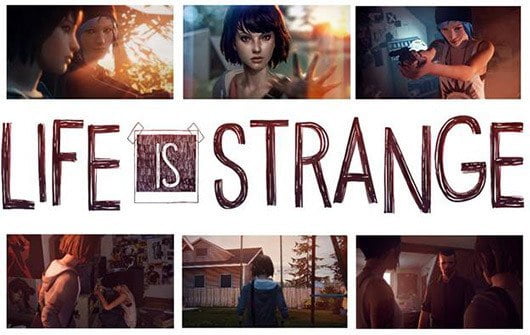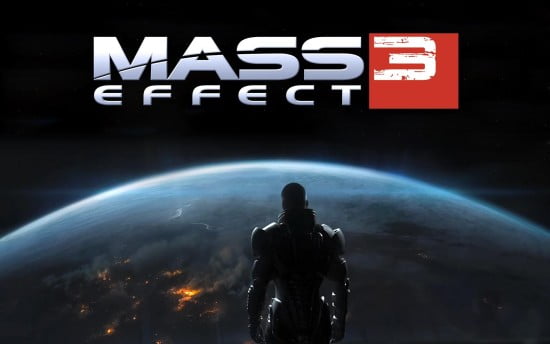
I mean what is an ending, really? What is a game ending all about?
Last year – just! – I reviewed and wrote about Mass Effect 3. There’s going to be spoilers for that in this post, just so you know. Also, Kay wrote a very good article about the ending of Life Is Strange, and if you’d rather avoid Mass Effect 3 spoilers, go read that.

When I was reviewing Mass Effect 3 I made sure to write down a lot of notes as I was progressing because while the ending was known to me, I knew it’d been changed, and I knew that hyperbole was something gamer culture did. Odds were good, I figured, that I’d get to the end and it’d be just unsatisfying rather than badly made. Or, odds were, gamers had fixated on some part of that conclusion and not actually really ‘gotten’ it. The point was, I knew that if the ending was bad it might colour how I felt about the rest of the story.
Story beats along the way, like saving Grunt and not saving Miranda had an impact on me, but mostly in how the game made me feel about how the game was put together. I fell out of the diegesis of the game regularly, because the looming shadow of How are they going to tie this together hung over me.
Now, the ending of Mass Effect 3 is bullshit. It’s really, really unpleasant to experience, not just in that it’s four conclusions I actively dislike, but that it diminishes the world it’s in, it puts moral weight on actions that don’t need them, the dialogue is clunky, and it erases the consequence of numerous actions throughout the narrative.
Now, there’s a term I’ve been avoiding here, which is bad ending. I’ve been stewing on that phrase for a few days now and the more I wonder about it, the more frustrated I become with the very nature of the language we use to describe it.
Is the Mass Effect 3 ending bad because it’s emotionally unsatisfying? Is it bad because its themes contravene the themes of the game? Is it bad because of its internal morality, or its structural design? What about it makes it bad?
There are people I know who love games with stories I’ve simplified into calling ‘bad.’ Heck, I’ve offhandedly dismissed the plot of things I’ve recommended as being ‘total garbage’ in the past. The plot of lots of games are total garbage. Some stories, I’ll complain about, some stories I’ll call bad but in the end I’ll play the game anyway, because there’s more than just that core, classically-related narrative that engages me.
What does it mean for a story to be ‘good’ or ‘bad’? Is a story that’s 98% enjoyable, full of engaging, sweet character moments and wonderful interplays of culture and theme, then 2% poop mermaids circling the bowl a bad story? At the time, I didn’t really have an answer, but I think I’ve come around to one.
A story is in a way, a magical spell. It is a construction you put into someone else’s mind through words, tone, pacing, light and colour. You craft it – as best you can – like a ship in a bottle, into someone else’s mental space, and what you construct has to hang together. It has to be able to hold and work when you stop touching it, when the supporting struts of your effort are not there any more. When I call the ending of Mass Effect 3 bad, it’s because it fails at that, and as a result of that all of the other problems rush in. It wouldn’t be discordant with the existing themes of the work if it worked, because that discord is part of why it doesn’t work. It is emotionally unsatisfying in part because it doesn’t work.
That, and crucially, there’s other stuff going on in Mass Effect 3. There’s doodads to collect and missions to go do and optional side stuff and exploration and a space of freedom and things you do around the narrative, smaller narratives you can find or create or experience. You can, for example blow eighty hours of your life on the multiplayer, before and after you play the game. There are smaller stories that make up the whole. There’s the amazing lines of dialogue that evoke whole narratives around them, lines like “Had to be me. Someone else might have gotten it wrong.”
Ugh, gimme a moment.
Anyway, the point is that Mass Effect 3 is a large project, a structure made up of all these other structures. The smaller structures work and the larger structure has a hole in it. The single piece of narrative that serves as a thesis for Mass Effect 3 is not Mass Effect 3’s conclusion, but rather the Citadel DLC – which is a massive and complex piece of media that inter-weaves so many plot threads that were left hanging and stuffs itself full to the brim with non-stop characterisation in a variety of different contexts. That single ‘story’ is the sort of thing that an ending should be – a grand culmination of so many parts of a story, working together. The Citadel DLC recognises that the grander narrative is not as important as the experience of the characters they’ve been making part of your in-game life.
So a bad story isn’t a death knell for a game, but it also means that the game has to have other things going on. This is like that ‘big art’ problem I talked about with the Metal Gear games. Just how big a piece of art is can impact how you experience it. If it takes a few seconds to take the whole thing in, even one second of badness is probably too much badness.
What then, of Life Is Strange?
If you made me make my point quickly it’s that the story’s bad but if you want to kiss Chloe, you’ll probably enjoy it.
Unlike Mass Effect 3, there isn’t a lot going into Life Is Strange. Life Is Strange is a narrative game pared down to its barest bones, with almost all systems excised in the name of focusing on its aesthetics and its environment. There really isn’t that much to Life Is Strange that isn’t part of its narrative. There are items to look at, environments to explore, but they’re all very small, narrow environments, with the same small cast of characters. You could hypothetically use this to get to know them very closely, but there just isn’t that much space to do it. You’re always going to be limited by Max’s mindset, by when she can and can’t use her time travel – and honestly, there are some characters for whom there just isn’t much there there.
There’s just a lot less for Life Is Strange to stand on. There’s a lot of weight put on choices in the early game, with a deliberate emphasis on the idea that this will have consequences later. Reasonable, after all, but that creates an anticipation. When you focus your narrative so that it’s looking towards its own conclusion, there’s a natural expectation that it’s going to be worth it. The way the time travel isn’t explained, the seeming fetish for killing Chloe, the morally peculiar way the game considers single actions transformative, the ham-fisted handling of some very heavy, very dark topics, that sort of thing is all meant to hide under the shadow of that conclusion. Don’t worry, the game says this will all make sense.
What do you get at the end?
A bullshit sacrifice ending.
When the final choice was presented to me – save Chloe’s life, or let everyone in Arcadia Bay die – it wasn’t a hard one for me. It wasn’t hard because the story was attempting to invoke guilt and emotion over actions where there was literally no reason to. I won’t rehash the issue – Kay does that job fine – but the story just wants to tell you you used your power too much. It wants to make the ending evoke a guilt for a sin you could never have committed. It wants to take the bullshit short-cut jab at the player of you did this because you could while completely failing to recognise how players would be doing things. Which is extra messed up because at this point, the developers had statistical data on the kind of behaviour players engaged in!
What this meant is the final moments of Life Is Strange were not spent engaged with the character, connected to her, feeling as she did and considering that final question as a serious issue. Instead, it popped up to me a question of which would you like to feel bad about, and…
I didn’t.
I just didn’t feel bad.
Fuck this pile of pixels. Fuck this collection of flags. Fuck your efforts to make me feel bad about how much you like killing Chloe, game. And fuck your narrative laziness of giving a girl power then trying to damn her for using it. Sure, let’s have the cute girls drive away out of this town with its serial killers and its power structures. Why didn’t we stop to loot on the way out the door? Nobody’s going to care if we take cash out of a till, after all. Or would doing that require us to consider the way that some people were almost certainly still alive?
Nah, that false dichotomy had to hang there and it had to be presented. The story had to build up to a bullshit choice that it accused you for making it make you make.
The thing is, if you want to just chill out in Arcadia bay, the game lets you. There are a lot of places where you can just sit down, and watch. There are numerous points where the game is literally waiting for you to be done looking at it so it can proceed. Lay in bed with Chloe for hours. Soak in the sunshine on a park bench. If that’s what you want to do in this game, it lets you, and honestly, it’s something the game does well. It’s got wonderful aesthetics, a beautiful sense of music and framing, and there’s a real sense of care in how these scenes are constructed.
If all you want to do is melt time with Chloe, if you want to hang around your rad friend, in a host of situations… well, you can do it. It’s there. And that’s probably where Life Is Strange is at its strongest. Because boy howdy, Life Is Strange is not good at telling a story. It knows the bits of stories, but it’s not really sure how to put them together.
Still, we’re not going to talk about the structural theme and laziness in narrative in Life Is Strange. To do that we’re going to have to go to another time, a parallel one.